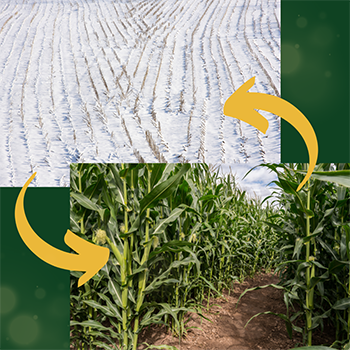Winter Planning Factors for Maximizing Corn Yields
Jan 19, 2024

By Kyle Korf, GCC Sales Manager/ Agronomist
Successful crop management demands a strategic approach considering various factors that impact crop success. Achieving optimal corn yields relies on thoughtful planning during winter. Exploring five key factors helps untangle the complexities of this crucial process. Customized planning is essential for each farming operation to implement these practices effectively. The expertise of GCC's experienced seed professionals and agronomists provides valuable support, empowering growers to make informed decisions tailored to their specific operational requirements.
1. Hybrid Selection
Selecting the right hybrid for specific environments is one of most important factors for corn production. Matching hybrid to water quality and quantity, soil type and its attributes, fertility, and the right seed trait technologies for battling pests are key factors to consider for maximizing yields. GCC has two full-time seed professionals to help in the seed decision process for our growers.
2. Plant Populations
Placing the right number of seeds per acre based on water, environment, and seed characteristics are also very important factors for determining yield potentials. Knowing the population a specific hybrid should be planted at because of how it responds or does not respond to high or low populations can be key.
3. Planting Dates
Planting on the right date based on geography can have a large impact on yield. Often planting earlier lengthens growing season and moves pollination earlier which can potentially reduce heat and moisture stress. In some cases, if you are in a scenario of sharing water with another field or crop, for example wheat, maybe a little later planted corn may make sense economically
4. Fertility Management
Managing macronutrients such as nitrogen, phosphorus, and potassium can be key to maintaining adequate nutrients available at different stages when corn needs it. This can be accomplished by soil and tissue test and sometimes may result in the need for multiple applications of fertilizer through the growing season. In addition to macronutrients, micronutrients can often get overlooked. Micros can be key to increasing yields, in addition to general plant health, and grain quality. Most of the time there are nutrient options that can either be applied to soil or foliar. GCC either carries or can access numerous macro and micro fertilizer options to fit a grower’s specific operation.
5. Crop Rotation and Weed Management
Crop rotation can be a key to help break weed and insect cycles. Also, certain previous crops can increase residue, moisture holding capacity, and previous nitrogen fixing crops for example can help increase fertility.